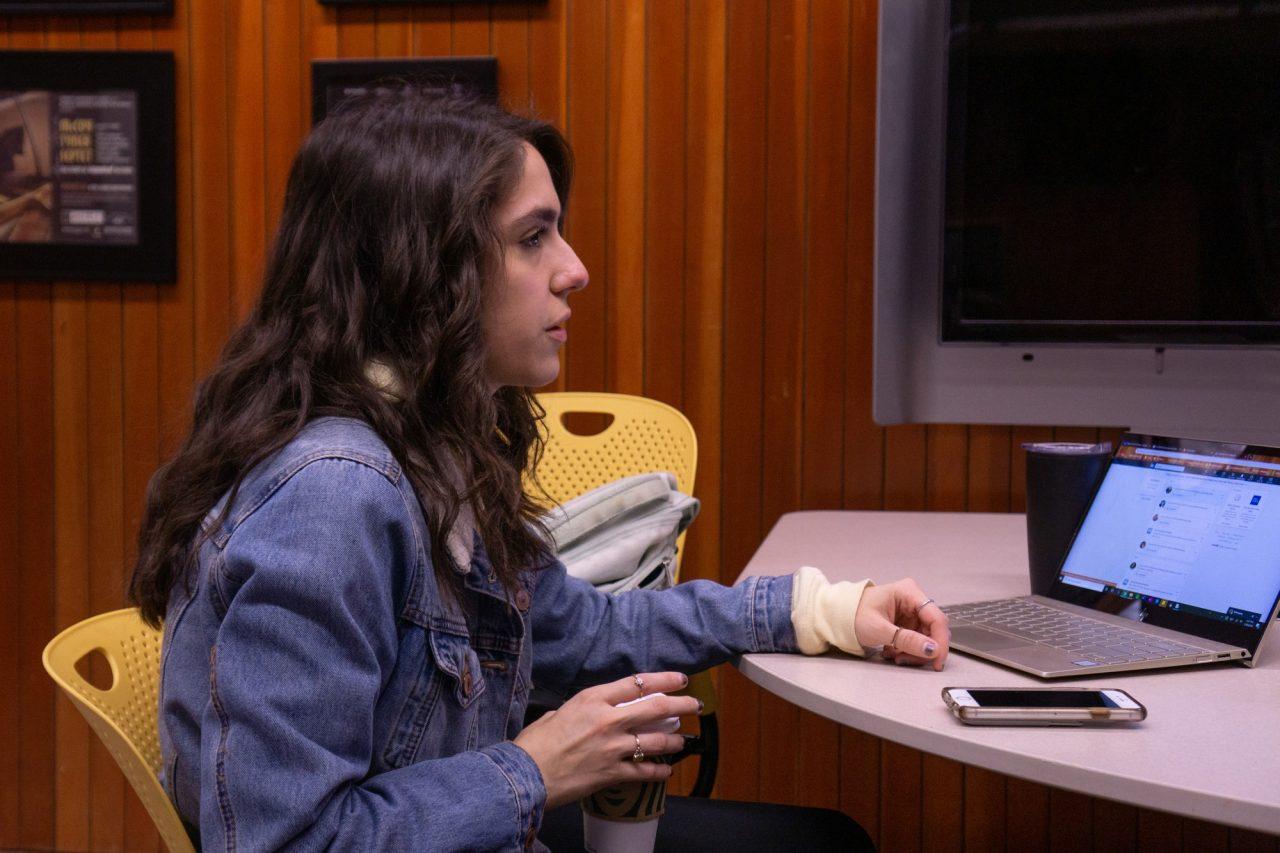Photo by Kate Nuelle
Trinity is a bubble existing in the context of a large city with a long, rich history. Two Trinity anthropology students, senior Connor Halbert and junior Gabrielle Rodriguez, have the opportunity to explore this history through their internship at the University of Texas-San Antonio (UTSA)’s Center for Archaeological Research (CAR).
Rodriguez and Halbert will soon begin their demographic research by looking at archival records from the 18th and early 19th century under the supervision of Clint McKenzie, Project Archaeologist and Project Archivist at UTSA CAR.
“We’re going to be looking at the Spanish Colonial period here in San Antonio,” Rodriguez said. “We’re going to be archiving records from families that were here, going through, making sure everything is right, that there’s no mistakes, trying to find missing numbers of families that maybe weren’t documented, reasons as to why they may have died, why they left or stayed.”
Jennifer Mathews, chair of Trinity’s Department of Anthropology and Sociology, connected Halbert and Rodriguez to the internship.
“Depending on the student’s interests, we want to get them hands-on, applied experience,” Mathews said. “We, through our connections in the community, will reach out to find out where are the needs are, and if a student demonstrates an interest in a particular area then we try and partner them up with that organization … In a lot of cases, internships that they have had have turned into either temporary employment or long-term employment.”
Halbert and Rodriguez will be working with UTSA’s and San Antonio’s archives for their work and compiling their demographic findings into an Excel spreadsheet. Most of their work will be done remotely, as they will be dealing with digital files of translations of primary Spanish Colonial archival documents.
According to Halbert, marriage records will be an especially good source of information. He explained that record-keeping at the time was poor, but many people were Catholic and involved with the church. When people got married, the church’s marriage records would take note of their ethnicity, if they had been married before, and their age and their family.
“While these records were originally taken in Spanish, they’ve been translated roughly into English, and those are the materials we are working with in order to see what the demographic situation was like in early San Antonio,” Halbert said.
McKenzie also emphasized the value of working with primary archival records.
“Working with primary archival records is an opportunity to ‘see’ history and to connect with the lives and challenges settlers, soldiers and Native Americans faced in a frontier community,” McKenzie wrote in an email interview. “Who is immigrating (as well as why and what they are doing occupationally) along with how they integrate into the community is an important part of understanding demography and human population studies and the work generated by the interns will contribute to unraveling and explaining a host of those questions.”
The internship will give Halbert valuable work experience that will aid him in achieving his long-term goals. He plans on getting a master’s in library and information sciences, but before he enters grad school he hopes to work some jobs in that field to gain some professional experience.
“I want to become more comfortable working with archival materials since that’s something I am potentially thinking about going into for a career,” Halbert said.
Something that makes this internship unique from Halbert’s past work experience is its independence from Trinity.
“This will be the first actual job I’ve had that wasn’t at Trinity, employed by Trinity. I’m hoping to gain some professional experience and skills with it that don’t necessarily pertain strictly to anthropology,” Halbert said.
Rodriguez wants to go into user experience, and for her, the internship is mainly for fun, as well as to give her a background on demographics.
“I want to focus on learning how to catalog things more, just so that way I can have that experience, especially with Excel,” Rodriguez said. “I really would like to learn more about demographics, just because I find it super interesting, just kind of seeing the changes over time.”
The work that Halbert and Rodriguez will be completing is for McKenzie’s dissertation.
“Long-term it is hoped that this work (together with data previously generated on births, deaths and marriages for the same period) can result in the production of a demographic data-set available to researchers studying early San Antonio and the population dynamics of frontier communities,” McKenzie wrote.







